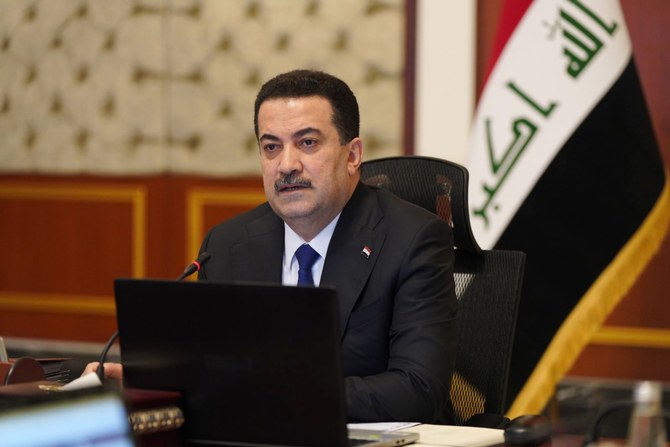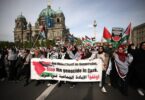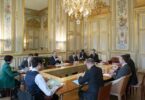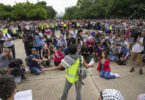Talmiz Ahmad
Iraq’s parliament on Monday passed a $153 billion budget for 2023, the largest in the country’s history. This reflected a brief moment of consensus among Iraq’s feuding politicians, whose infighting had delayed it by six months. Anticipating problems in the coming years, the parliament approved the budgeted amount of $153 billion for the next two years as well.
Iraq’s political divisions go back to the national elections in October 2021, when the firebrand cleric Muqtada Al-Sadr’s coalition gained the largest number of seats. He, however, insisted on forming a “national majority government” of Shiite, Sunni and Kurdish partners, condemning his Shiite rivals – the Iran-sponsored Fatah and Nouri Al-Maliki’s State of Law coalition – to opposition status. They, with their allies, formed the Coordination Framework of their own.
In June last year, frustrated by delays in the formation of a government, Al-Sadr ordered his followers to resign from parliament, possibly to force early elections. Instead, as per Iraqi law, his members were immediately replaced by the candidates who came second in the previous electoral cycle. This enabled the rival Coordination Framework coalition to obtain a majority and form a government in October 2022, with Mohammed Shia Al-Sudani as prime minister. Earlier, in August, Al-Sadr had announced he was withdrawing from politics and closing all his offices and institutions. Since then, the level of internecine violence has reduced and Iraq has projected a sense of calm. The prime minister has earned a reputation as a good leader and administrator who is making every effort to promote national unity and deliver on his agenda of security, development, the provision of public services – particularly healthcare, education and employment – and improved ties with all neighbors.
Critics, however, point out that there is little evidence of real change. The country continues to be controlled by well-entrenched politicians who gouge national assets for personal benefit. Regionally, too, Iraq continues to grapple with the challenges posed by its immediate neighbors – Iran and Turkiye. Iran remains the dominant player in Iraqi affairs, largely because it is the principal sponsor behind most of the politicians that make up the Coordination Framework and also the militias that constitute the powerful Popular Mobilization Units. The PMU remains a strong political and military presence in the country and is a major threat to the Coordination Framework’s rivals and the US military presence in the country. In November, Al-Sudani approved the setting up of a PMU-controlled commercial enterprise, the Al-Muhandis General Company, which is authorized to operate in areas such as agriculture, industry, engineering and construction, thus entrenching the militias in the national economy.
Tehran also has concerns about some of the disgruntled Kurds living in Iraqi Kurdistan, who have launched attacks on Iranian territory, leading to retaliatory attacks from the Iranian side. In March this year, Iran and Iraq concluded a border security agreement to curb such actions by the Kurds and keep the border tranquil. Turkiye’s involvement in Iraq is related to the Kurds from the US-supported Syrian Democratic Forces, who have close links with the Patriotic Union of Kurdistan, based at Sulaymaniyah in Iraq, and who take sanctuary there when needed. Ankara not only launches cross-border attacks on them, but it also maintains military outposts deep inside Iraqi territory. In April, Turkiye launched a drone strike on a senior SDF commander at Sulaymaniyah airport. It sees the SDF as a partner of the Kurdistan Workers’ Party, known as the PKK, which it has labeled a terrorist organization. Turkiye thus views the SDF as a legitimate military target in both Syria and Iraq. In his short time as prime minister, Al-Sudani has made a major effort to mend Iraq’s ties with Arab countries, which had been strained by the sectarian orientation of some of the country’s earlier governments, particularly that of Al-Maliki. Ties with Saudi Arabia are now a priority concern, particularly the expansion of economic relations.
In February, Saudi Foreign Minister Prince Faisal bin Farhan visited Iraq and the two countries signed a memorandum of understanding on intelligence and security cooperation – their first in 40 years. The same month, Al-Sudani visited the UAE and applauded the latter as a “model” for Iraq’s reconstruction efforts. In May, Iraq hosted a meeting of officials from Iran and Egypt on restoring diplomatic ties and arranging a meeting between the leaders of the two countries. Even though Iraq currently has a functioning government, it faces serious domestic challenges. The federal government has to contend with the problem of oil exports by the Kurdistan Regional Government in Irbil and the attendant problem of its sharing of revenues with Baghdad, as differences on this led to the suspension of oil exports in March. In April, the two sides agreed that the federal government and the KRG would jointly market the latter’s oil and the revenues would be adjusted against the monthly budgetary flows from Baghdad to Irbil. However, politicians are now revisiting the agreement and seeking major modifications; this has created uncertainty among major buyers about the smooth flow of oil from Kurdistan. Iraq is also beset with serious economic issues. Despite the strong political support for the budget, there are concerns about the large fiscal deficit, the ever-increasing public wages and pensions bill, and uncertainties relating to oil production and the price on which all budgetary projections have been made.
Above all, Al-Sadr, who remains temporarily out of politics, is a potentially disruptive presence due to his ability to mobilize millions of followers with a single tweet. Thus, behind the facade of normalcy, the country’s mainstream politicians remain discredited, its youth remain frustrated, its public services remain grossly inadequate and its neighbors remain intrusive. It is politics as usual in Iraq.







